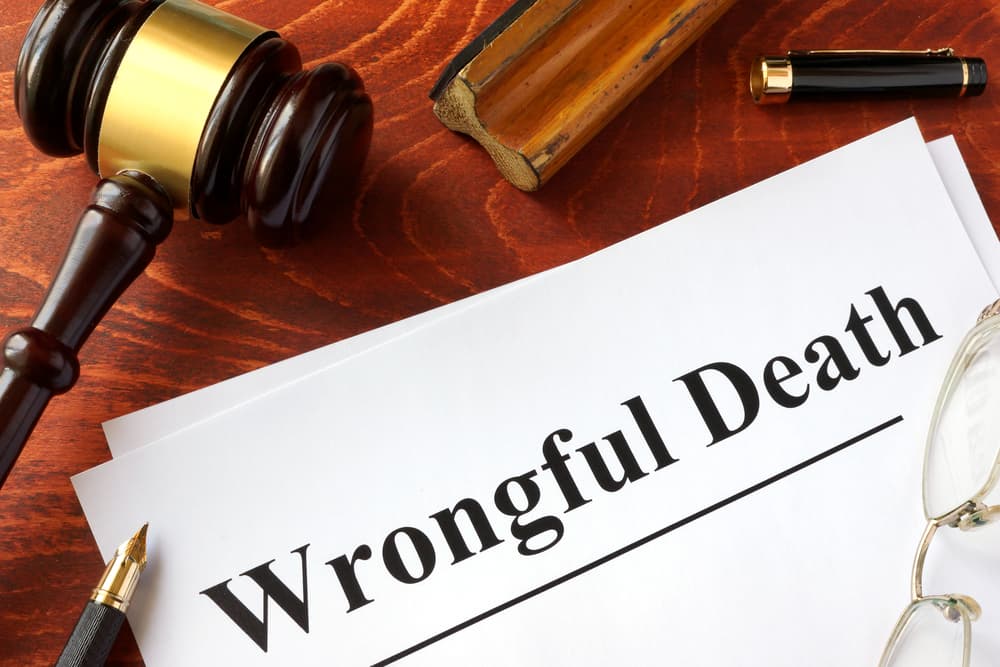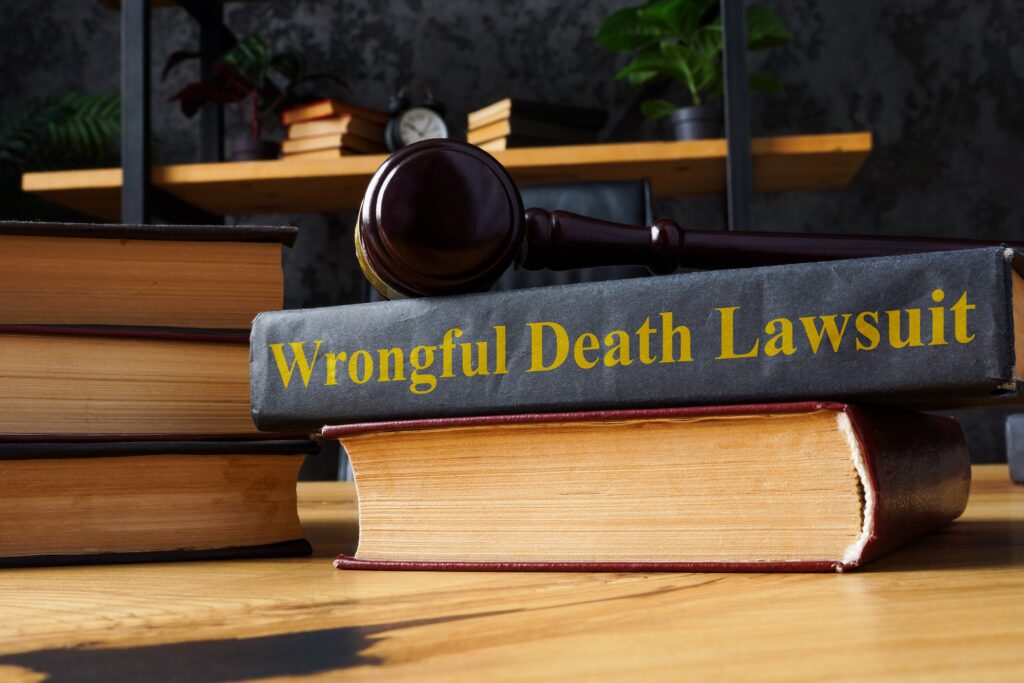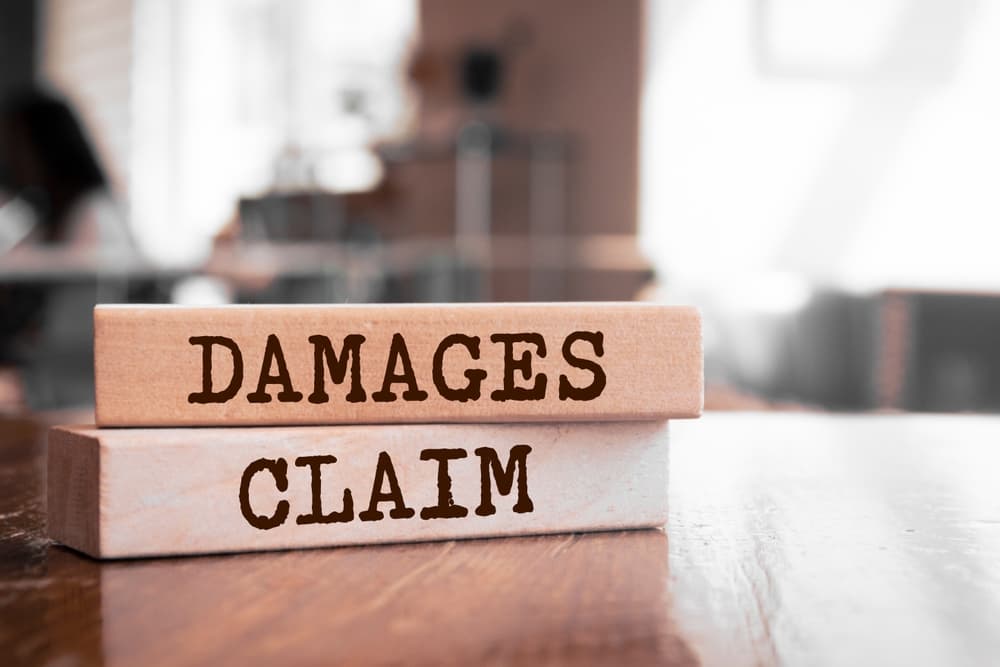
A wrongful death claim is a legal action that surviving family members or representatives of a deceased individual’s estate may bring against another party due to their negligence, recklessness, or intentional wrongdoing.
The claim seeks to hold the responsible party accountable for the death and recover compensation for the damages the victim’s loved ones suffered, such as loss of financial support, loss of companionship, and funeral expenses.
The wrongful death statute of limitations sets a time limit within which the claimant must file a wrongful death lawsuit. This time limit varies by jurisdiction but generally ranges from one to three years from the date of the victim’s death.
Failing to file within the specified timeframe can result in losing the right to seek compensation for the wrongful death.
If you recently lost a loved one due to another person’s or entity’s wrongful act, you may have legal options available. A knowledgeable wrongful death attorney in your jurisdiction can file a timely wrongful death claim or lawsuit and pursue the compensation you need at this difficult time.
Reasons for a Wrongful Death Statute of Limitations
The statute of limitations in a wrongful death case serves several important purposes to ensure fairness and efficiency in the legal system.
First, it promotes the timely resolution of legal disputes by setting a deadline for the claimant to file the wrongful death claim. This helps prevent undue delay in seeking justice and ensures that evidence and witnesses remain available and memories stay fresh.
By encouraging prompt action, the statute of limitations helps prevent stale claims and promotes efficiency in the legal process.
In addition, the statute of limitations promotes judicial efficiency by preventing the clogging of court dockets with old or outdated claims. Courts have limited resources and must prioritize cases that are timely and deserving of judicial attention.
By requiring the parties seeking relief to bring their claims within a specified timeframe, the statute of limitations helps conserve judicial resources. It ensures that courts can focus on resolving current disputes in a timely manner.
Because the statute of limitations is relatively short in most jurisdictions, act quickly to secure legal counsel for your case.
A knowledgeable wrongful death attorney can review the circumstances surrounding your loved one’s death and determine your eligibility for filing a claim. They can then take the appropriate legal steps within the required statutory timeframe.
Who Can File a Wrongful Death Claim?

In cases of wrongful death, certain individuals may be eligible to file a claim or lawsuit seeking compensation for the loss of their loved one. Eligibility typically depends on the relationship between the deceased and the potential claimant, as well as the laws of the jurisdiction where the claim is filed.
First, immediate family members of the deceased are often eligible to file a wrongful death claim. This typically includes spouses, children, and parents of the deceased. These individuals suffer direct losses from the death and may recover compensation for the financial and emotional repercussions of their loss.
In addition to immediate family members, dependent relatives who relied on the deceased for financial support or care may also be eligible to file a wrongful death claim. This may include siblings, grandparents, or other relatives who can demonstrate that they suffered a tangible loss due to the death of their loved one.
Furthermore, in some cases, individuals who were financially dependent on the deceased, such as domestic partners or non-marital children, may also be eligible to file a wrongful death claim. However, eligibility of these individuals may vary depending on the state's laws where the claim originates and the specific case's circumstances.
Eligibility to file a wrongful death claim is not limited to family members. In certain circumstances, personal representatives of the deceased’s estate may also bring a wrongful death lawsuit on behalf of the estate and its beneficiaries. This may include individuals appointed as executors or administrators of the estate through a will or probate court.
Eligibility to file a wrongful death claim or lawsuit depends on the relationship with the deceased and the laws governing wrongful death claims in the relevant jurisdiction. Consulting with an experienced attorney knowledgeable in wrongful death cases can help individuals understand their rights and options for seeking compensation for their loss.
Legally Proving a Wrongful Death Claim
Proving the elements of a wrongful death claim or lawsuit requires presenting evidence to establish several key factors, typically including negligence or wrongful conduct, causation, damages, and standing to sue.
First, to prove negligence or wrongful conduct, the plaintiff must demonstrate that the accused (defendant) owed a duty of care to the deceased and breached that duty through their actions or omissions. This may involve showing that the defendant acted recklessly, negligently, or intentionally in a manner that directly contributed to the victim's death.
Evidence to support this element may include eyewitness testimony, expert opinions, documentation of safety violations, or records of prior misconduct by the defendant.
Second, the plaintiff must establish causation to show that the defendant’s breach of duty was a direct and proximate cause of the victim’s death. This requires demonstrating that the defendant’s actions or omissions were a substantial factor in the fatal injury or condition. Medical records, autopsy reports, expert testimony, and accident reconstruction analysis help to establish causation.
Furthermore, the plaintiff must prove the damages resulting from the wrongful death, including both economic and non-economic losses the deceased’s survivors suffered.
Economic damages may include medical expenses, funeral costs, lost income, and loss of financial support or services the deceased provided. Non-economic damages may encompass pain and suffering, loss of companionship, emotional distress, and loss of guidance or consortium.
In addition, the plaintiff must have standing to sue, meaning they must be a legally recognized party with the right to bring a wrongful death claim on behalf of the deceased and their beneficiaries.
This typically involves demonstrating a familial or financial relationship to the deceased, such as being a surviving spouse, child, parent, or dependent relative.
Legal documentation, such as marriage certificates, birth certificates, wills, or estate planning documents, may be necessary to establish standing.
To prove these elements in court, plaintiffs may present different evidence, including witness testimony, documentary evidence, expert opinions, medical records, accident reports, photographs, and other relevant materials.
Building a strong case requires careful preparation, thorough investigation, and effective presentation of evidence to demonstrate the defendant’s liability and the extent of the damages the victim and their survivors suffered.
A knowledgeable wrongful death attorney can help plaintiffs navigate the legal process and maximize their chances of obtaining justice and fair compensation for their loss.
Successfully Settling or Litigating a Wrongful Death Case
Deciding whether to settle or litigate a wrongful death case requires careful consideration of various factors.
One key factor to consider is the strength of the evidence supporting the claim. Assessing the strength of the evidence involves evaluating the likelihood of success at trial based on the available evidence, witness testimony, and legal arguments.
If the evidence strongly supports the plaintiff’s case and indicates a high likelihood of success at trial, it may be advantageous to proceed with litigation to pursue maximum compensation for the damages suffered.
In addition, the plaintiff must carefully weigh the potential costs and risks associated with litigation. Litigation can be time-consuming, emotionally draining, and expensive, with costs including attorney fees, court fees, expert witness fees, and other litigation expenses.
Furthermore, a trial may yield an unfavorable outcome, which can result in no recovery or even financial liability for the plaintiff.
On the other hand, settling the case may offer certain advantages, including the potential for a faster resolution, reduced legal expenses, and certainty of outcome.
Settlement negotiations allow parties to reach a mutually acceptable agreement outside of court, often with the assistance of a mediator or arbitrator. Settlements can compensate the plaintiff without the uncertainty and stress of a trial, allowing them to move forward and focus on healing and rebuilding their lives.
Moreover, the claimant must consider the needs and preferences of the surviving family members when deciding whether to settle or litigate a wrongful death case. Some families may prefer to avoid the emotional strain and publicity of a trial by settling the case more quickly and confidentially.
Others may feel strongly about seeking justice in court and holding the responsible parties accountable through litigation, even if it means enduring a longer and more difficult legal process.
A careful evaluation of the case's strengths and weaknesses, the potential costs and risks of litigation, and the preferences and needs of the surviving family members should guide the decision to settle or litigate a wrongful death case.
An experienced and compassionate wrongful death attorney in your area can provide valuable guidance so you can make informed decisions about the best course of action for your particular situation.
Recoverable Wrongful Death Damages

In a wrongful death claim or lawsuit, various types of recoverable compensation are available to the surviving family members or beneficiaries of the deceased. These types of compensation aim to provide financial support and acknowledge the losses suffered as a result of the wrongful death.
One type of recoverable compensation is economic damages, which are tangible financial losses the surviving family members incurred because of the death.
Economic damages may include medical expenses related to the deceased’s final illness or injury, funeral and burial costs, lost income or financial support that the deceased would have provided to their family, and the value of household services or care that the deceased would have performed.
Another type of compensation is non-economic damages, which are intangible losses that are more difficult to quantify but are equally important in recognizing the emotional and psychological effects of the wrongful death.
Non-economic damages may include compensation for pain and suffering the deceased endured before their death, as well as the emotional distress, mental anguish, and loss of companionship the surviving family members experienced as a result of the death.
Furthermore, the claimant may pursue punitive damages in certain cases where the defendant’s conduct was particularly egregious or reckless. Punitive damages punish the defendant for their wrongful actions and deter similar misconduct. Punitive damages require extreme negligence, intentional misconduct, or gross negligence.
Moreover, in some jurisdictions, survival actions may allow for recovery of damages that the deceased could have pursued in a personal injury lawsuit had they survived.
This may include compensation for pain and suffering the deceased endured before their death, as well as medical expenses and other losses incurred as a result of the injury or illness that ultimately led to their death.
Recoverable compensation available in a wrongful death claim or lawsuit aims to provide financial support and recognition of the losses the surviving family members suffered as a result of the wrongful death.
Consulting experienced attorneys with experience in wrongful death cases can help individuals understand their rights and pursue maximum compensation for their losses.
Speak With a Wrongful Death Lawyer Today
If you recently lost a loved one due to another person’s wrongful act, you must take action right away.
A knowledgeable personal injury lawyer in your jurisdiction will know the statute of limitations deadline and can file a timely claim or lawsuit in the court system for you. They can then begin securing the compensation that you and your family members deserve for your loved one’s untimely death.
You cannot expect any liable parties to volunteer compensation for your devastating losses. Instead, you must take the first steps to begin the process by seeking a free consultation with a local law firm.
Never wait to schedule your no-cost case evaluation. It will relieve stress from your family and put you on the path toward justice.
